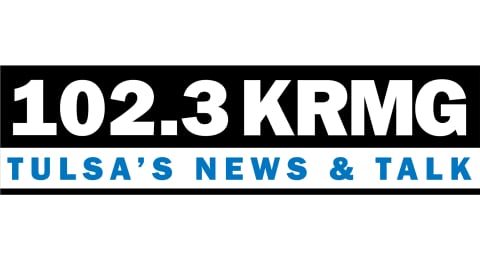TULSA — A bipartisan bill passed more than forty years ago has changed countless lives, though some think it needs to be rescinded.
Known as the Bayh-Dole Act of 1980, it’s named for its main co-sponsors, Democratic Senator Birch Bayh of Indiana and Republican Senator Bob Dole of Kansas.
[Hear the KRMG In-Depth Report on the Bayh-Dole Act and American innovation HERE]
It was passed by a remarkable, bipartisan margin of 94 to 6 in the U.S. Senate, at a time when a Republican challenger was mounting a campaign against a Democratic president in a contentious race.
Over the years, some have criticized Bayh-Dole, and there have been efforts to overturn it.
So in February of 2020, the Bayh-Dole Coalition was founded in an effort to protect the law, and to raise public awareness of it - an awareness that’s all but nonexistent, according to the Executive Director of the coalition, Joe Allen.
Allen tells KRMG until the law was passed, government-funded research was generally given away to anyone who wanted it, or quite often, simply gathered dust on a shelf somewhere, giving researchers little incentive to continue or expand their work.
Bayh-Dole was written to spur American innovation and reward those researchers and inventors, and Allen says it’s been extremely successful.
“The Bayh-Dole Act doesn’t get a lot of accolades,” he told KRMG. “It doesn’t have bureaucracy hyping it, it doesn’t have a big budget hyping it. It’s done on the quiet. We start three new companies and commercialize three new technologies a day from government-funded inventions, and that’s under the radar screen. Nobody else is close to that.”
It allows schools or businesses to patent technologies or inventions which result from that taxpayer-funded research, and has led to any number of innovations which have created massive companies, and saved millions of lives.
In September, the coalition hosted its inaugural American Innovator awards at the White House, recognizing five people whose research led to major breakthroughs.
As listed on the Bayh-Dole Coalition website, the recipients were:
- Katalin Karikó, a University of Pennsylvania biochemist who helped develop the mRNA technology behind the Pfizer and Moderna Covid-19 vaccines, preventing nearly 20 million deaths.
- Dennis Liotta, an Emory University professor and chemist whose work on “emtricitabine” helped transform HIV from a death sentence into a manageable illness, saving tens of millions of lives.
- Carol Mimura, a UC Berkeley technology transfer official who helped commercialize the Nobel-winning research that led to the revolutionary cancer immunotherapy Yervoy.
- Yan Wang, a Worcester Polytechnic Institute engineering professor who developed a new lithium car battery recycling technique that could end our dependence on gas-powered cars.
- Peter Stern, an entrepreneur who leads a Columbia University spinout that aims to revolutionize LiDAR Technology.
Just days later, Karikó was also awarded the Nobel Prize for Physiology or Medicine for her work on mRNA.
Work that Allen says would likely not have been completed were it not for the Bayh-Dole Act.
Another example - the wildly popular, and ubiquitous, search engine called “Google.”
As Allen tells the story, “Google came out of Bayh-Dole. Google was two kids in a dormitory. No one wanted to license Google, there was no interest in Google. These two kids came to (Stanford University), and said ‘hey, we’d like to start a company,’ and Stanford let them, and that turned into Google.”
Allen says people are unlikely to give up years of their lives and overcome huge obstacles to come up with such innovations unless there’s a reward at the end of the road.
China, he told KRMG, seems to have adopted the idea, and are trying to copy Bayh-Dole - but may well regret that decision.
“The Chinese have made a fatal mistake, in my estimation,” Allen said. “They’ve turned on their entrepreneurs,” meaning they’ve tried to incentivize them.
He says that may come back to bite them, “Because entrepreneurs are not easy to control.”
So the U.S. should be careful, Allen added, because with the Chinese trying to spark innovation - “this is no time to mess around with a law that’s actually making us the most innovative country in the history of the world.”




